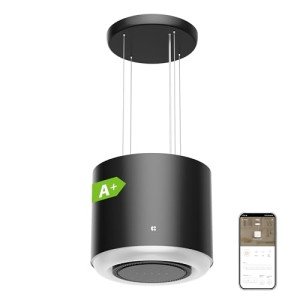Can Island Extractors Never Rule The World?
페이지 정보
본문
Island Extractors: A Comprehensive Guide to a Unique Industry
In the world of extraction industries, couple of sectors catch the imagination as clearly as that of kitchen extractor hood island extractors. These specialized entities concentrate on the extraction of valuable resources, both sustainable and non-renewable, from island communities. This short article explores the multifaceted world of kitchen island hoods extractors, discussing their operations, environmental impacts, and the future of this niche market.
Comprehending Island Extraction
island cooker extractor hood extractors are business or individuals that engage in the extraction of natural deposits found on islands. This extraction can include a range of materials, such as minerals, fossil fuels, and even marine resources. Given the distinct ecosystems found on islands, the extraction process can present both chances and fundamental challenges.
Classifications of Island Extraction
Island extraction can typically be categorized into a number of categories:
| Category | Description | Examples |
|---|---|---|
| Mineral Extraction | The elimination of minerals from the earth | Kaolin, Bauxite, Iron Ore |
| Nonrenewable Fuel Source Extraction | Extraction of fuels formed from organic matter over island extractor fan centuries | Oil, Natural Gas |
| Marine Resource Extraction | Gathering resources from oceanic environments | Fish, Seaweed, Shellfish |
| Renewable Resource Extraction | Extraction of sustainable resources | Wood, Freshwater |
The Process of Island Extraction
The extraction process itself can differ significantly based on the resource in question. The procedures for extracting oil diametrically vary from those for gathering seafood.
Steps in the Extraction Process
- Exploration: This stage involves geological surveys and initial research studies to evaluate the potential of the resource.
- Regulations Compliance: Compliance with local and worldwide environmental laws is important to guarantee sustainable practices.
- Extraction: This consists of drilling for oil or mining for minerals, and can cause considerable disruption to local environments if not managed effectively.
- Transport: Extracted resources normally require transportation back to the mainland or other markets, typically including the use of ships and barges.
- Post-Extraction Restoration: Efforts to bring back the environment post-extraction are important to mitigate lasting impacts.
Ecological Impact of Island Extraction
Provided the fragile nature of island hood kitchen communities, the environmental impact of extraction activities can be considerable.
Secret Environmental Concerns
- Habitat Destruction: The physical elimination of landscapes can devastate regional flora and animals.
- Contamination: Resource extraction can introduce toxins, resulting in ocean acidification, water contamination, and air quality degradation.
- Coastal Erosion: Activities can worsen seaside disintegration, altering the natural landscape and Slim Island Range Hood affecting local neighborhoods.
- Biodiversity Loss: Extractors frequently disrupt regional ecosystems, positioning native types at danger.
Mitigation Measures
To combat these effects, island extractors are increasingly adopting sustainable practices that include:
- Implementing more stringent ecological policies
- Using innovation for safer extraction processes
- Performing thorough environmental effect evaluations (EIA)
- Engaging with regional communities during planning and operation phases
The Future of Island Extraction
As international need continues to increase for natural resources, the future of island extractors appears appealing yet complex. Numerous elements will form the trajectory of this industry in coming years:
- Technological Advancements: Innovations in extraction technology may result in more effective and less ecologically disruptive approaches.
- Regulatory Changes: As climate modification ends up being an ever-pressing issue, more stringent policies may redefine extraction practices, focusing on sustainability.
- Pressure from Environmental Groups: Increased advocacy for the defense of biodiversity and communities can influence operational protocols.
- Shift towards Renewable Resources: A growing focus on renewable resource options may alter the focus from non-renewable extraction to sustainable practices.
Regularly Asked Questions
What resources are typically extracted from islands?
Typical resources extracted from islands include minerals, nonrenewable fuel sources, timber, freshwater, and marine resources such as fish and seaweed.
How do island extractors make sure sustainability?
Island extractors can ensure sustainability by sticking to ecological guidelines, integrating technology that decreases effect, and restoring environments post-extraction.
What are the significant difficulties faced by island extractors?
Difficulties consist of compliance with regulations, handling environmental impacts, logistical concerns related to transportation, and Slim island Range hood engaging with local neighborhoods affected by extraction.

Are there any noteworthy island extraction tasks?
Yes, various jobs exist internationally, including mineral mining in the Caribbean, oil drilling in the North Sea, and sustainable fish farming initiatives in Southeast Asia.
The world of island extractors is a complicated interplay in between economic opportunity and environmental obligation. As this industry progresses, the challenge will be to stabilize resource extraction with the requirement to safeguard fragile slim island Range hood environments. By accepting sustainable practices and engaging with regional communities, island extractors can forge a path that appreciates both nature and industry, ensuring that these special environments are preserved for generations to come.


